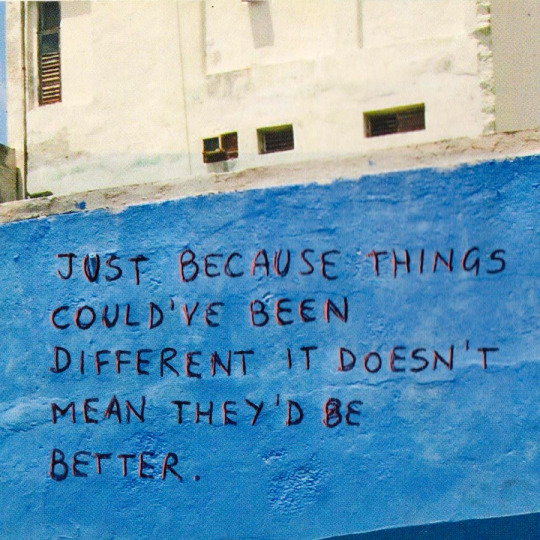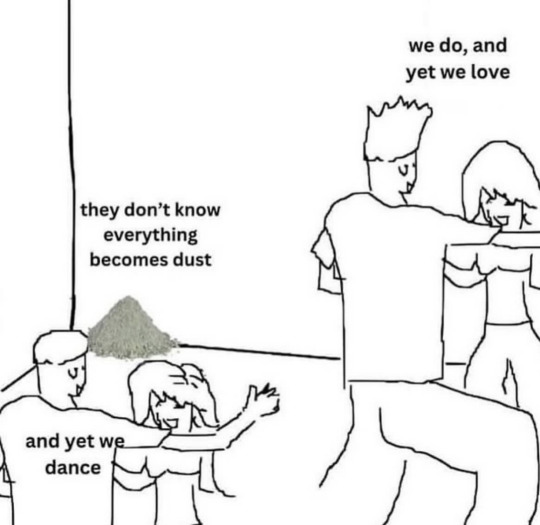#optimals
Text

get ready for an exuberant summer
30K notes
·
View notes
Text
No paywall version here.
"Two and a half years ago, when I was asked to help write the most authoritative report on climate change in the United States, I hesitated...
In the end, I said yes, but reluctantly. Frankly, I was sick of admonishing people about how bad things could get. Scientists have raised the alarm over and over again, and still the temperature rises. Extreme events like heat waves, floods and droughts are becoming more severe and frequent, exactly as we predicted they would. We were proved right. It didn’t seem to matter.
Our report, which was released on Tuesday, contains more dire warnings. There are plenty of new reasons for despair. Thanks to recent scientific advances, we can now link climate change to specific extreme weather disasters, and we have a better understanding of how the feedback loops in the climate system can make warming even worse. We can also now more confidently forecast catastrophic outcomes if global emissions continue on their current trajectory.
But to me, the most surprising new finding in the Fifth National Climate Assessment is this: There has been genuine progress, too.
I’m used to mind-boggling numbers, and there are many of them in this report. Human beings have put about 1.6 trillion tons of carbon in the atmosphere since the Industrial Revolution — more than the weight of every living thing on Earth combined. But as we wrote the report, I learned other, even more mind-boggling numbers. In the last decade, the cost of wind energy has declined by 70 percent and solar has declined 90 percent. Renewables now make up 80 percent of new electricity generation capacity. Our country’s greenhouse gas emissions are falling, even as our G.D.P. and population grow.
In the report, we were tasked with projecting future climate change. We showed what the United States would look like if the world warms by 2 degrees Celsius. It wasn’t a pretty picture: more heat waves, more uncomfortably hot nights, more downpours, more droughts. If greenhouse emissions continue to rise, we could reach that point in the next couple of decades. If they fall a little, maybe we can stave it off until the middle of the century. But our findings also offered a glimmer of hope: If emissions fall dramatically, as the report suggested they could, we may never reach 2 degrees Celsius at all.
For the first time in my career, I felt something strange: optimism.
And that simple realization was enough to convince me that releasing yet another climate report was worthwhile.
Something has changed in the United States, and not just the climate. State, local and tribal governments all around the country have begun to take action. Some politicians now actually campaign on climate change, instead of ignoring or lying about it. Congress passed federal climate legislation — something I’d long regarded as impossible — in 2022 as we turned in the first draft.
[Note: She's talking about the Inflation Reduction Act and the Infrastructure Act, which despite the names were the two biggest climate packages passed in US history. And their passage in mid 2022 was a big turning point: that's when, for the first time in decades, a lot of scientists started looking at the numbers - esp the ones that would come from the IRA's funding - and said "Wait, holy shit, we have an actual chance."]
And while the report stresses the urgency of limiting warming to prevent terrible risks, it has a new message, too: We can do this. We now know how to make the dramatic emissions cuts we’d need to limit warming, and it’s very possible to do this in a way that’s sustainable, healthy and fair.
The conversation has moved on, and the role of scientists has changed. We’re not just warning of danger anymore. We’re showing the way to safety.
I was wrong about those previous reports: They did matter, after all. While climate scientists were warning the world of disaster, a small army of scientists, engineers, policymakers and others were getting to work. These first responders have helped move us toward our climate goals. Our warnings did their job.
To limit global warming, we need many more people to get on board... We need to reach those who haven’t yet been moved by our warnings. I’m not talking about the fossil fuel industry here; nor do I particularly care about winning over the small but noisy group of committed climate deniers. But I believe we can reach the many people whose eyes glaze over when they hear yet another dire warning or see another report like the one we just published.
The reason is that now, we have a better story to tell. The evidence is clear: Responding to climate change will not only create a better world for our children and grandchildren, but it will also make the world better for us right now.
Eliminating the sources of greenhouse gas emissions will make our air and water cleaner, our economy stronger and our quality of life better. It could save hundreds of thousands or even millions of lives across the country through air quality benefits alone. Using land more wisely can both limit climate change and protect biodiversity. Climate change most strongly affects communities that get a raw deal in our society: people with low incomes, people of color, children and the elderly. And climate action can be an opportunity to redress legacies of racism, neglect and injustice.
I could still tell you scary stories about a future ravaged by climate change, and they’d be true, at least on the trajectory we’re currently on. But it’s also true that we have a once-in-human-history chance not only to prevent the worst effects but also to make the world better right now. It would be a shame to squander this opportunity. So I don’t just want to talk about the problems anymore. I want to talk about the solutions. Consider this your last warning from me."
-via New York Times. Opinion essay by leading climate scientist Kate Marvel. November 18, 2023.
#WE CAN DO THIS#I SO TRULY BELIEVE THAT WE CAN DO THIS#WE CAN SAVE OURSELVES AND THE WORLD ALONG WITH US#climate crisis#united states#climate change#conservation#hope posting#sustainability#climate news#climate action#climate emergency#fossil fuels#global warming#environmentalism#climate hope#solarpunk#climate optimism#climate policy#earth#science#climate science#meteorology#extreme weather#renewable energy#solar power#wind power#renewables#carbon emissions#climate justice
33K notes
·
View notes
Text

55K notes
·
View notes
Text
I want to thank my laggy computer for this glitch:

#alan wake#alan wake 2#remedy#have they released the optimized version yet or no#send help#alan in an outfit-->alan in different outfit -->smoller alan
10K notes
·
View notes
Text

DR ADAM LEVY ClimateAdam
ROSEMARY MOSCO
#comic#climate change#climate science#climate action#climate crisis#doom scroll break#radical optimism#hope is a radical act
28K notes
·
View notes
Text
new headcanon: papyrus allows mad mew mew to keep living in the house because he hopes she'll drive out the annoying dog. but then she just keeps engaging in looney tunes esque shenanigans with it and its just an overall far worse situation

#i considered making papyrus look shocked or exhausted or something but i decided stalwart optimism is a much funnier reaction#he 100% still thinks this is the smartest idea#undertale#undertale fanart#sans#sans undertale#sans the skeleton#papyrus#papyrus undertale#mad mew mew#annoying dog#the annoying dog#dami's art#mad mew mew throws a stick of dynamite and the dog walks back over holding it like its fetch
5K notes
·
View notes
Text
It’s solar and wind and tidal and geothermal and hydropower.
It’s plant-based diets and regenerative livestock farming and insect protein and lab-grown meat.
It’s electric cars and reliable public transit and decreasing how far and how often we travel.
It’s growing your own vegetables and community gardens and vertical farms and supporting local producers.
It’s rewilding the countryside and greening cities.
It’s getting people active and improving disabled access.
It’s making your own clothes and buying or swapping sustainable stuff with your neighbours.
It’s the right to repair and reducing consumption in the first place.
It’s greater land rights for the commons and indigenous peoples and creating protected areas.
It’s radical, drastic change and community consensus.
It’s labour rights and less work.
It’s science and arts.
It’s theoretical academic thought and concrete practical action.
It’s signing petitions and campaigning and protesting and civil disobedience.
It’s sailboats and zeppelins.
It’s the speculative and the possible.
It’s raising living standards and curbing consumerism.
It’s global and local.
It’s me and you.
Climate solutions look different for everyone, and we all have something to offer.
#solarpunk#hopepunk#tidalpunk#cottagepunk#bright future#climate justice#environmentalism#optimism#social justice#community#solutions#pluralism#I know stuff like EVs and vertical farms get a bad rep#they are certainly overhyped and slight techbro solutions#but I think all avenues are worth exploring even if inevitably some will be less efficacious and just than others#sorry for the long tags lol
40K notes
·
View notes
Text
there's something so poetic about kipperlilly copperkettle—who hated one of her classmates for daring to be better than her and having a dead dad, who refused to improve herself and instead chose to be bitter and entitled, who was so obsessed with being Special and Important like she felt she deserved that she willingly worked with a rage god, betrayed her party, and killed her friend—getting killed by fucking. Hold Person. her fancy optimal build IMMEDIATELY folding in the face of riz's cleverness and experience and applied knowledge. she spends years fixated solely on racking up EXP and getting the Best Abilities, and then when she dies, she's killed not in glorious combat but by a clever, practical application of a 2nd level spell that she NEVER would have ever thought of using because she has no creativity or adventurers' spirit, cast by the same classmate she always hated with a watch his dead dad gave him.
#so obsessed with getting as high level as possible but gets killed by a low level spell#one she never would have considered casting herself because she's level 20! she's optimized! she has the BEST skills at her disposal!#but she ultimately loses to riz who follows the proud gukgak tradition of hard work as an act of love#who has years of experience gained from a genuine desire to help people rather than a desire for attention or accolades#and who is simply fucking better at pvp#kipperlilly copperkettle#riz gukgak#fantasy high#fhjy#fantasy high junior year#dimension 20#d20#anyway i fucking KNEW she was evil!!!!
5K notes
·
View notes
Text

Master Your Emotions..
#whatif#meanttobe#fate#destiny#truth#reality#wisdom#openmind#change#reflection#hindsight#learning#insight#progress#maturation#evolution#hope#optimism#zen
15K notes
·
View notes
Text

and yet we dance!
#theology#spirituality#christianity#christian blog#christian faith#catholiscism#catholic#spiritual memes#spiritualjourney#spiritualgrowth#spiritual awakening#spiritual development#spirtiuality#spiritual knowledge#optimism#optimistic#positive mindset#positive energy#positive affirmations#positive thinking#positive thoughts#positivity
5K notes
·
View notes
Text
friendly reminders:
you don't have to be productive every day
you are worthy even if all you did today was get out of bed
there are people out there who care about you
your existence makes a difference
if something bothers you, then it bothers you. no one has the right to tell you otherwise
you are allowed to take up space
there is no 'right way' to grieve
you cannot put a time limit on emotions
your likes and interests are valid and they matter
it's okay to take your time in doing things. not everyone can do everything at the same pace
#mental health#reminders#mental health awareness#mental health support#mental health issues#mental health reminders#mental health problems#therapy#coping#coping mechanisms#mental ill health#mental illness#wellbeing#wellness#motivation#productivity#optimism#positivity
21K notes
·
View notes
Text
i think star trek will stay with me forever.
it has injected me with a permanent joy and whimsy and helped me unlearn shame/cringe culture. most importantly, it makes me see the good in humanity.
star trek has affected me in ways i never knew media could affect me. it keeps me optimistic about humanity’s future, and inspires me to do what is right no matter what. star trek makes me unashamed to be myself, however nerdy or silly I may be.
star trek is so important to me and i have a feeling it always will be.
#drabble#star trek#star trek tos#star trek tng#sci fi#humans are inherently good#optimism#cringe culture is dead#gene roddenberry#star trek ds9
2K notes
·
View notes
Text
"With “green corridors” that mimic the natural forest, the Colombian city is driving down temperatures — and could become five degrees cooler over the next few decades.
In the face of a rapidly heating planet, the City of Eternal Spring — nicknamed so thanks to its year-round temperate climate — has found a way to keep its cool.
Previously, Medellín had undergone years of rapid urban expansion, which led to a severe urban heat island effect — raising temperatures in the city to significantly higher than in the surrounding suburban and rural areas. Roads and other concrete infrastructure absorb and maintain the sun’s heat for much longer than green infrastructure.
“Medellín grew at the expense of green spaces and vegetation,” says Pilar Vargas, a forest engineer working for City Hall. “We built and built and built. There wasn’t a lot of thought about the impact on the climate. It became obvious that had to change.”
Efforts began in 2016 under Medellín’s then mayor, Federico Gutiérrez (who, after completing one term in 2019, was re-elected at the end of 2023). The city launched a new approach to its urban development — one that focused on people and plants.
The $16.3 million initiative led to the creation of 30 Green Corridors along the city’s roads and waterways, improving or producing more than 70 hectares of green space, which includes 20 kilometers of shaded routes with cycle lanes and pedestrian paths.
These plant and tree-filled spaces — which connect all sorts of green areas such as the curb strips, squares, parks, vertical gardens, sidewalks, and even some of the seven hills that surround the city — produce fresh, cooling air in the face of urban heat. The corridors are also designed to mimic a natural forest with levels of low, medium and high plants, including native and tropical plants, bamboo grasses and palm trees.
Heat-trapping infrastructure like metro stations and bridges has also been greened as part of the project and government buildings have been adorned with green roofs and vertical gardens to beat the heat. The first of those was installed at Medellín’s City Hall, where nearly 100,000 plants and 12 species span the 1,810 square meter surface.
“It’s like urban acupuncture,” says Paula Zapata, advisor for Medellín at C40 Cities, a global network of about 100 of the world’s leading mayors. “The city is making these small interventions that together act to make a big impact.”
At the launch of the project, 120,000 individual plants and 12,500 trees were added to roads and parks across the city. By 2021, the figure had reached 2.5 million plants and 880,000 trees. Each has been carefully chosen to maximize their impact.
“The technical team thought a lot about the species used. They selected endemic ones that have a functional use,” explains Zapata.
The 72 species of plants and trees selected provide food for wildlife, help biodiversity to spread and fight air pollution. A study, for example, identified Mangifera indica as the best among six plant species found in Medellín at absorbing PM2.5 pollution — particulate matter that can cause asthma, bronchitis and heart disease — and surviving in polluted areas due to its “biochemical and biological mechanisms.”
And the urban planting continues to this day.
The groundwork is carried out by 150 citizen-gardeners like Pineda, who come from disadvantaged and minority backgrounds, with the support of 15 specialized forest engineers. Pineda is now the leader of a team of seven other gardeners who attend to corridors all across the city, shifting depending on the current priorities...
“I’m completely in favor of the corridors,” says [Victoria Perez, another citizen-gardener], who grew up in a poor suburb in the city of 2.5 million people. “It really improves the quality of life here.”
Wilmar Jesus, a 48-year-old Afro-Colombian farmer on his first day of the job, is pleased about the project’s possibilities for his own future. “I want to learn more and become better,” he says. “This gives me the opportunity to advance myself.”
The project’s wider impacts are like a breath of fresh air. Medellín’s temperatures fell by 2°C in the first three years of the program, and officials expect a further decrease of 4 to 5C over the next few decades, even taking into account climate change. In turn, City Hall says this will minimize the need for energy-intensive air conditioning...
In addition, the project has had a significant impact on air pollution. Between 2016 and 2019, the level of PM2.5 fell significantly, and in turn the city’s morbidity rate from acute respiratory infections decreased from 159.8 to 95.3 per 1,000 people [Note: That means the city's rate of people getting sick with lung/throat/respiratory infections.]
There’s also been a 34.6 percent rise in cycling in the city, likely due to the new bike paths built for the project, and biodiversity studies show that wildlife is coming back — one sample of five Green Corridors identified 30 different species of butterfly.
Other cities are already taking note. Bogotá and Barranquilla have adopted similar plans, among other Colombian cities, and last year São Paulo, Brazil, the largest city in South America, began expanding its corridors after launching them in 2022.
“For sure, Green Corridors could work in many other places,” says Zapata."
-via Reasons to Be Cheerful, March 4, 2024
#colombia#brazil#urban#urban landscape#urban planning#cities#civil engineering#green architecture#green spaces#urban heat#urban heat island effect#weather#meteorology#global warming#climate change#climate hope#climate optimism#climate emergency#climate action#environment#environmental news#city architecture#bicycling#native plants#biodiversity#good news#hope#solarpunk#ecopunk#hopepunk
15K notes
·
View notes
Text










it gets better
(credit to @ink-the-artist for the borzoi art <3 )
#hopecore#hope#you are loved#webweaving#words#beautiful#love#this is everything everywhere all at once core#everything everywhere all at once#memes#silly#poetry#art#girl core#optimism#Love love love you all#love everyone in the quotes i hope you’re okay#comfort#comfort core#you’re safe#recovery#on the human condition#on hope#credit to ink-the-artist on tumblr for the borzoi sticker#2nd one!!#joyful whimsy#joyful whimsy tag#humanity#on humanity and love#hopepunk
9K notes
·
View notes
Text

And perhaps whatever you hope for will come true.
2K notes
·
View notes
Text

find yourself a man who knows you well enough after only a few encounters to guess that you were not in fact involved in a hostile takeover because the monsters aren't ecologically practical
#kabru of utaya#laios touden#labru#anyway I like kabru's weird mix of optimism and pessimism#like yeah this is a dire scenario... can't give up hope yet though!
2K notes
·
View notes